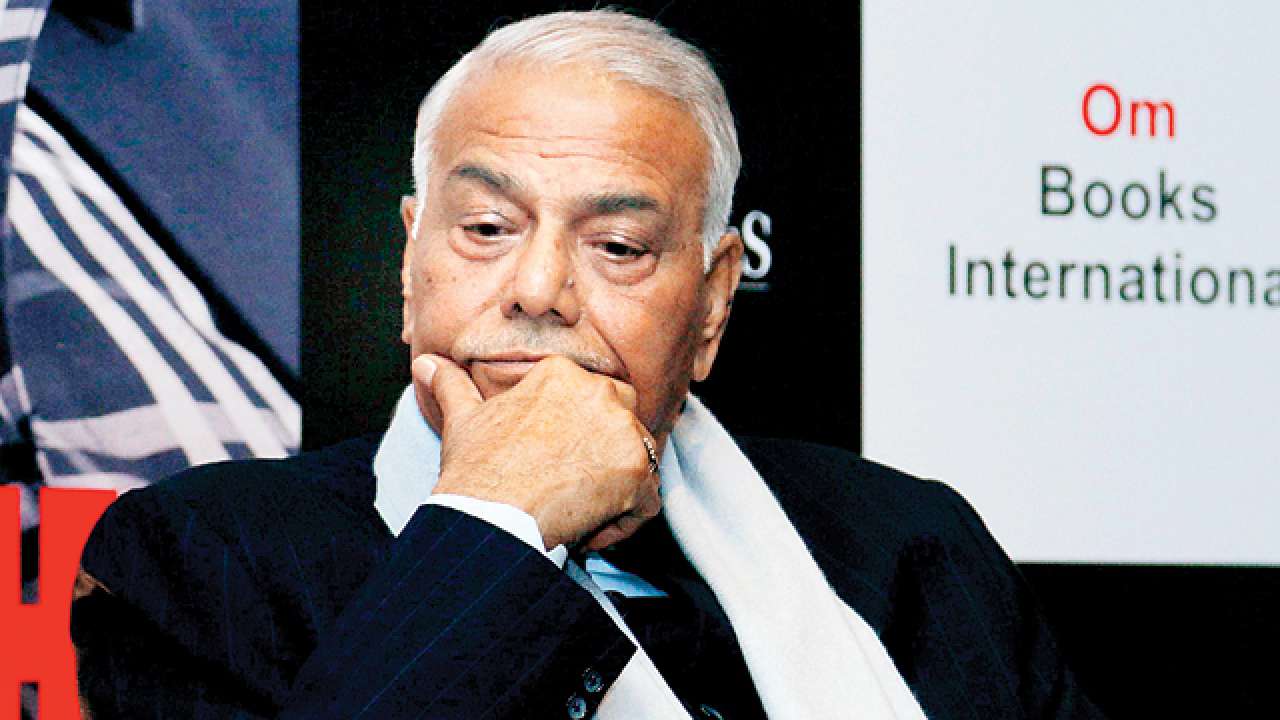
What are the ethics of public disagreement and dissent in India among members of the same political party? This question has assumed centre stage once again with the spat over Yashwant Sinha’s public criticism of the Government’s economic policies. What comes to mind, in the same vein, is Arun Shourie’s even more unsparing condemnation earlier, aired on several TV channels. Shourie did not even spare the Prime Minister. In both cases, quick to take advantage, members of the Opposition sprang to the support and defence of both gentlemen. Much outcry and outrage ensued from aggrieved supporters of the government, followed by counter-attacks in the press and social media.
If we study counter-criticism of the criticisers, it follows two broad lines. In the first instance, the latter’s arguments are taken seriously and disputed on substance. This, of course, would be the logical course of action. But what invariably follows is also motive-hunting and blame game. Why are leaders, who enjoyed much power and prestige in the past by virtue of belonging to the very same party, now breaking rank, that too publicly, by openly criticising the government? This is seen as bad form, verging on betrayal.
Why not? Breaching party loyalties is never taken lightly. In any political arrangement, swift reprisals usually follow. In the case of both these eminent public figures, however, there has been no retaliation or punishment. Again, this was to be expected. Removal from public office is not possible because they do not hold any. Dismissal from the party is not worthwhile because they are nowhere in the running for desirable positions. Clearly, these leaders have been side-lined or benched. Some have even lampooned them, somewhat uncharitably, as dinosaurs.
But the moot point is their motive. Have they vented their frustrations because they have been marginalised? Is it just a question of sour grapes or, to shift metaphors, missed buses? Or is their motive returning to active politics?
As has been standard operating procedure in Indian politics, public criticism of one’s party or leader is either a bargaining ploy or prelude to switching one’s loyalties. In this case, however, the latter may safely be ruled out.
Neither of the aforementioned stalwarts seems likely to shift political allegiance. Neither are these leaders raging openly simply for having been overlooked in the distribution of tickets, constituencies, berths, or posts.
Perhaps, the motive is deeper, even psychological. Are they complaining because no one is paying attention to them? No matter how noble, selfless, or disinterested a politician or public figure may be, he may not like to be ignored. To be abandoned, mistreated, or unloved is not something human beings can easily stomach, let alone take kindly to. In fact, being denied recognition is akin to a kind of death. As human beings we wish to live forever, either biologically through reproduction, or figuratively in other people’s minds, hearts, affections, and thoughts. Even terrorists seek violent, sometimes suicidal ends, to be thus immortalised. More ordinarily, we misbehave because we want to be noticed, which is almost a human reflex. Even being attacked is preferable to being forgotten or unseen. Once we are acknowledged, by the public, if not by our peers, we feel somehow validated, even in their disapproval.
Even so, should senior leaders break party solidarity by going public with their disgruntlement? Should former cabinet ministers and senior members of the ruling party openly reproach, if not censure, the government and its leaders? No. Even if the criticism is constructive, it is better conveyed privately, through proper channels, rather than broadcast. To wash one’s dirty linen in public is not just poor etiquette, but also bad politics. Concomitantly, the party should have better consultative mechanisms, especially for its seniors. You can’t talk of respecting elders and at the same time ignore them. Why not open a special outreach channel for all constructive advice and valuable inputs? Seniors, in turn, need not be interfering or uncharitable, having enjoyed so much importance and attention in the past. On all such occasions, however, the Prime Minister must be congratulated for maintaining a dignified silence. Not to have reacted or hit back is a sign of wisdom, not to speak of self-confidence. Listening to criticism is itself an art, the mark of the truly great.
Mahatma Gandhi, whose birthday is approaching, once received a long letter full of abusive words. The three full scape pages — it was much before our time of trolls and tweets — were held together with an all pin. Bapu pitched the hate-filled missive, but removed the pin with a wry comment, “This is the only useful thing in it.” We should find similar ways of disarming our opponents. As to the criticism of greats such as Shourie or Sinha, I’m sure we may find a lot more to learn.
The author is a poet and professor at JNU. Views expressed are personal.